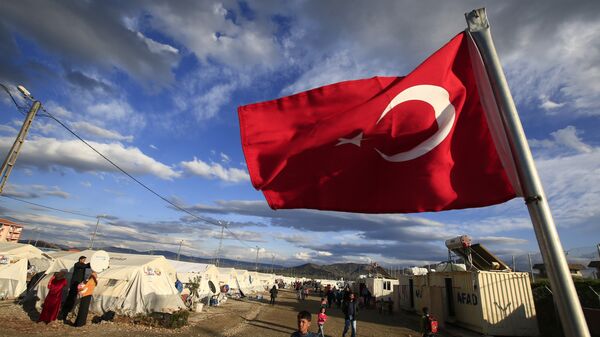The Minister also required the European Union to provide a set time for visa-free entry saying that "it can be the beginning or the middle of October, but we expect a firm date."
The agreement for Turkey to take in as many as 1 million additional Syrian refugees in return for substantial financial compensation and a fast-track approach to the country’s accession into the European Union has long rested on the issue of Visa-Free travel for Turkish citizens.
Conditions on the ground have fundamentally changed since the agreement was first penned on March 18 at the behest of German Chancellor Angela Merkel, herself under siege by domestic opposition to her “open door” policy that has seen some 2 million war refugees flood into the country.
Since the agreement, Turkey has faced a number of major security incidents including the terror attack at Istanbul’s Ataturk International Airport and the failed coup attempt of July 15. Europe’s mood towards cooperation with Turkey, which was already a good deal wanting, has all but collapsed in the wake of the post-coup purge that has seen over 60,000 soldiers, police officers, teachers, and judges forced to resign from their positions.
Additionally, some 18,000 individuals have been arrested in the aftermath of the coup and have been forced to reside in prison conditions that have raised alarms for international human rights groups.
The situation between the West and Ankara has further devolved in recent weeks with the Erdogan regime bombarding the United States and NATO forces with repeated claims that they aided and abetted purported coup leader US-based Turkish cleric Fethullah Gulen.
The original deal also faced considerable scorn from the human rights community in that it calls for Europe to keep those refugees who can provide in a skilled-labor economy while relegating migrants lacking specialized training to questionable conditions in Turkish camps with sporadic reports that Ankara has forced hundreds of refugees back to Syria to die.
At the time of the agreement, former British Prime Minister David Cameron scoffed at the notion that Turkish residents would receive visa-free travel and EU membership asserting that they would not be prepared to be a part of the European Union for at least another thousand years.
In the wake of the coup, the security situation inside of Turkey is such that the cost-benefit for Europe of admitting Turkish residents without a visa requirement has fundamentally shifted with the EU bound to worry whether opening their border to Ankara may, in fact, increase the threat of terror.





